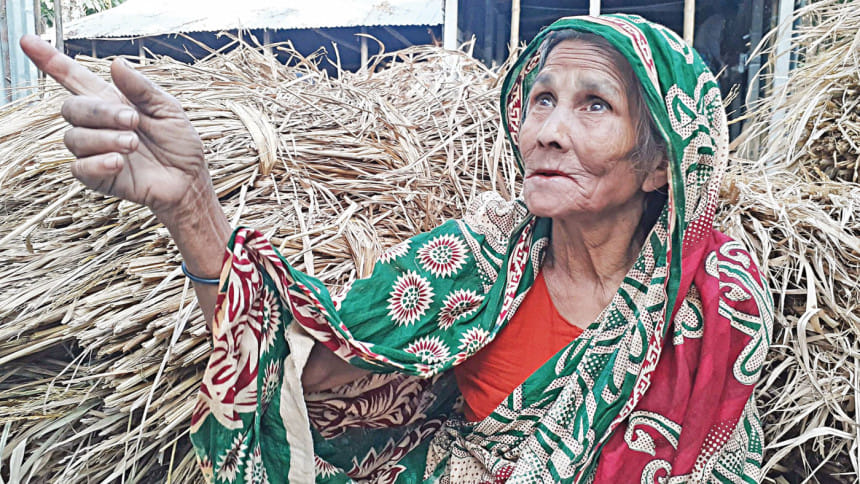The ‘Birangona’ we never knew

It was a Saturday noon in 1971 when Jahiron Bewa's world came tumbling down.
The ordeal that unfolded that day and continued throughout the next three days left a deep-rooted scar in the mind of the 25-year-old woman, now 74.
"I can never forget the unspeakable horror that was unleashed on me. It comes back when I close my eyes. Memories of those days are still vivid," said Jahiron.
All these years, she bottled up the pain to herself and turned away from those who asked about her trauma. "But I won't live much longer and now I think that time has come for me to let everyone know what the war did to me," she said.
The War of Independence was raging on elsewhere at the time and the Pakistan army had just set up a camp near the Teesta railway bridge -- about 500 meters from their village named Teesta Pangatari in Lalmonirhat Sadar upazila.
But until that day, Jahiron had a simple life, revolving around her husband and their two children -- a 10-year-old daughter and a two-year-old son.
She could not remember the exact date. But she remembers clearly that her daughter was visiting her grandfather's house and her husband, Kazim Ullah, was also not home when she saw people fleeing as the Pakistan troops were entering the village.
Jahiron, while nursing her toddler, had to make a quick decision. As she could not think of leaving her loved ones behind for her own safety, she decided to hole up inside the house until her husband and daughter returned home.
But the Pakistani intruders broke in to the house. Tossing her baby onto the ground, three of them raped her. While they dragged her out of the house, she pleaded to take the baby with her. But her plea could not soften the minds of the soldiers.
They took her to their camp and there they committed brutal sexual and physical assaults on her for three days, reminisced Jahiron with agony in her eyes.
But after she was released from the camp, her husband Kazim refused to take her back. Several days later he retracted from the decision, but Jahiron was never the same person.
Reeling from the trauma, she withdrew herself from everyone around her. She spent most of her days crying and she could not even tend to her breastfeeding child.
Later, Jahiron and Kazim had two more children together, but their relations never healed, she said adding that she had to endure repression and abuse from Kazim until he passed away 20 years ago.
Their children are now all grown up, but they are busy taking care of their own families.
Neglected by the children, the frail elderly woman now survives on old age allowance of the government and a meagre income from working as domestic help.
The government did not yet recognise Jahiron as Birangona (war-heroine) -- the women and girls who had been raped systematically by the Pakistan occupation forces and their collaborators during the Liberation War of Bangladesh.

 For all latest news, follow The Daily Star's Google News channel.
For all latest news, follow The Daily Star's Google News channel. 



Comments